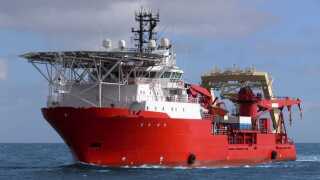The minister for economic development called in a TV interview for TIM to be split into two independent companies, with one running infrastructure and the other offering services.
Carlo Calenda, whose ministry oversees telecoms, said in the interview that the two companies should be listed separately on the market and said TIM is already considering such a move.
He told Bloomberg Television this week: “My opinion is very clear, I think that we should have two legal entities, separated, on the market. I think that they are considering this. They are studying the various possibilities and opportunities.”
TIM’s CEO Amos Genish said in December 2017 that the company is looking at “different separation models”.
A TIM official told Capacity today: ““I can confirm you that during the board on 5 December last year the CEO presented an overview of the regulatory framework, including the different fixed network separation models in comparison with other international case studies, and that over the coming months the management will continue to examine various hypotheses to establish whether network separation is needed to address institutions’ input and to unlock value.”
The official added: “So, we are studying if and eventually how to do it, but it is a lengthy process.”
One of the challenges, suggested Calenda, is that it is hard to define where TIM’s network – which includes its national infrastructure in Italy as well as Sparkle’s international carrier business – begins and ends. This “is not easy at all”, the minister told Bloomberg in the interview. “It is a very important operation and will take time to complete.”
He said TIM was working with the regulator, Agcom, on the spin-off.
Calenda asked TIM to start the process of defining the network in December 2017, when he met Genish. The CEO said at the time: “The letter [from the government] is basically asking TIM to identify all material and immaterial assets that make up the network.”
The government’s main issue with TIM is that French company Vivendi is now the largest shareholder and its executives have management control. Genish was chief convergence officer at Vivendi before becoming CEO of TIM, and Vivendi CEO Arnaud de Puyfontaine chairs TIM’s board.
The Italian government is uncomfortable with the idea that nationally important infrastructure, including Sparkle’s network, should be under foreign control. The government has a “golden power” over TIM by which it can impose certain conditions.
Calenda pointed out in his TV interview that TIM is facing a fine of 1% of TIM and Vivendi’s combined sales – about €300 million – because it did not tell the government that Vivendi was now the biggest shareholder. The government is negotiating with TIM over the matter and may use this as leverage over the issue of structural separation.
TIM has looked at structural separation before, in 2012-13 when Franco Bernabè was CEO. Bernabè resigned when the then board rejected his plan. But now Vivendi has restored him to TIM’s board and the project is back on the agenda.





